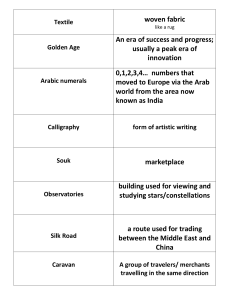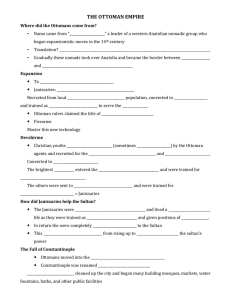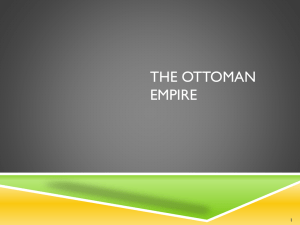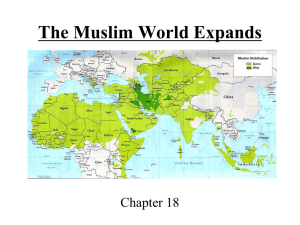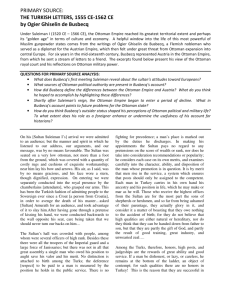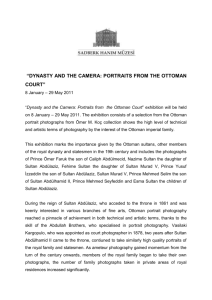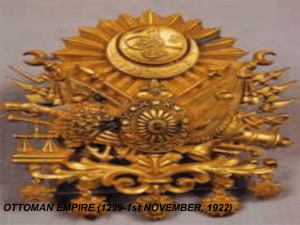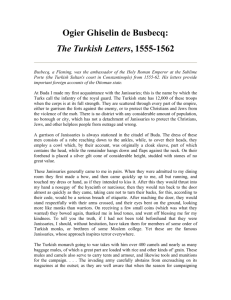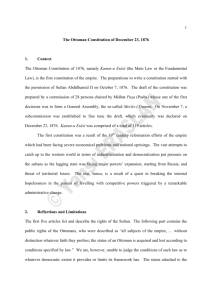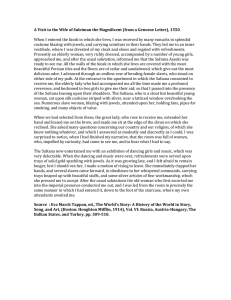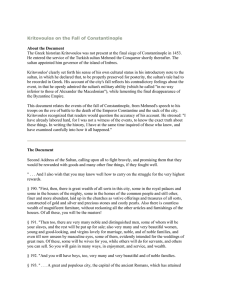8_01 - The Ottoman Empire _Lum
advertisement
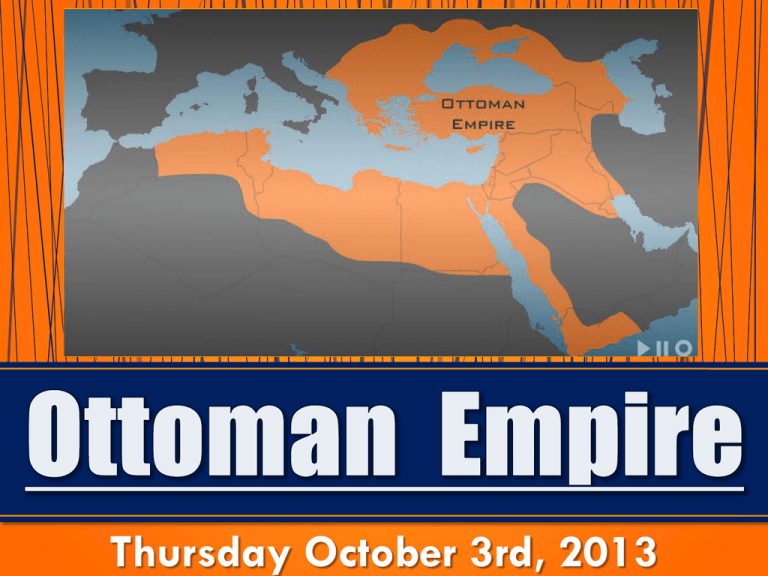
Thursday October 3rd, 2013 Students will be able to describe the key characteristics of the Ottoman Empire by • Completing guided notes • Comparing the achievements of key leaders, and • Analyzing primary source documents Founded by Turkish tribes under the leader Osman Bey • Sultan – Supreme military and political authority • Grand vizier – Chief minister to the sultan Allow newly conquered territories to be ruled by local officials, but keep pashas to collect taxes and maintain order. I will… “Gunpowder empire” – unified the lands that were conquered • Mastery of firearms lead to greater conquest “At Buda I made my first acquaintance with the Janissaries; this is the name by which the Turks call the infantry of the royal guard. The Turkish state has 12,000 of these troops when the corps is at its full strength. They are scattered through every part of the empire, either to garrison the forts against the enemy, or to protect the Christians and Jews from the violence of the mob. There is no district with any considerable amount of population, no borough or city, which has not a detachment of Janissaries to protect the Christians, Jews, and other helpless people from outrage and wrong.” Janissaries – Islamic converts who served the sultan as soldiers or administrators •Often held privileged places in society •Did not pass down their privilege to their Depiction of(often a Janissary from children Eastern Europe (1550) eunuchs) Date 1514 1527 1567 1574 1598 1609 1660 1669 1687 Gunners 348 695 1204 1099 2827 1552 2026 2793 4949 Artillery Carts 372 943 678 400 700 684 282 432 670 Weapons Smith 451 524 789 625 3000 5730 4180 4789 3503 1453: Mehmed II moved to take the city • Six week siege of the city • The city was thoroughly fortified and protected But the walls are no match for a 17’ cannon Sultan Mehmed II entering Constantinople The same gate today. Mehmed II moves the capital to Constantinople and, under the leadership of Selim I, expand further. • Conquering Mecca, Medina, and Jerusalem The empire reaches it height under Sulieman the Magnificent “The sultan’s hall was crowded with people… but there was not in all that great assembly a single man who owed his position to anything save valor and merit. No distinction is attached to birth among the Turks… In making his appointments, the Sultan pays no regard to any pretensions on the score of wealth or rank, nor does he take into consideration recommendations or popularity. He considers each case on its own merits, and examines carefully into the character, ability, and disposition of the man whose promotion is in question. … Those who receive the highest offices from the Sultan … do not believe that high qualities are either natural or hereditary, nor do they think that they can be handed down from father to son, but that they are partly the gift of God, and partly the result of good training [in state schools], great industry, and unwearied zeal… Among the Turks, therefore, honors, high posts, and judgeships are the rewards of great ability and good service. If a man be dishonest, or lazy, or careless, he remains at the bottom of the ladder. This is the reason that they are successful in their undertakings …and are daily extending the bounds of their empire.” Ottoman sultans were responsible for upholding Islamic law • Ulema (religious advisors) managed the legal system and schools • Generally religiously tolerant • Non Muslims had to pay an additional tax • Most Europeans remain Christian under their rule Women had more rights than in other Muslim societies • Owned and inherited property • Could not be forced to marry • Served as officials • Queen mother of the Sultan had considerable power • After Sulieman, Sultans became less involved with gov’t • Constant wars depleted the treasury • Western influence from Europe • Western delicacies like coffee and tobacco were outlawed to combat this Yes sultan, don’t worry, just leave it to your Grand Vizier… Now, complete your exit ticket before the weekend comes.
